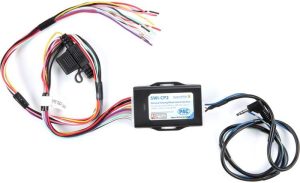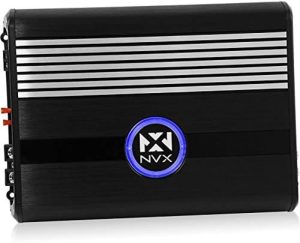When shopping for car audio or home sound equipment, you’ll likely encounter Rockville amplifiers. These budget-friendly amps have gained popularity among audio enthusiasts looking for affordable options without breaking the bank. But the question remains: Are Rockville amps good?
In this comprehensive guide, we’ll dive deep into Rockville amplifiers, examining their quality, performance, reliability, and value. We’ll compare them with other brands and help you decide if a Rockville amp is the right choice for your audio setup.
Contents
- The Truth About Rockville Amplifiers
- Power Ratings: Understanding the Numbers
- Build Quality and Durability
- Value Proposition: Price vs. Performance
- Specific Rockville Amp Models Worth Considering
- Real-World Performance: What Users Say
- Rockville vs. Competitor Brands
- Installation Tips for Rockville Amplifiers
- Who Should Buy Rockville Amplifiers?
- Who Should Look Elsewhere?
- Final Verdict: Are Rockville Amps Good?
- The Bottom Line on Rockville Amplifiers
- Frequently Asked Questions About Rockville Amplifiers
The Truth About Rockville Amplifiers
Rockville is a brand that divides opinion in the audio community. Founded in 2012, Rockville has positioned itself as a budget-friendly alternative to premium audio brands. The company offers car amplifiers, home audio equipment, and professional sound gear at prices that often undercut the competition by a significant margin.
The main appeal of Rockville amps is their attractive price point. You can purchase a Rockville amplifier for a fraction of what you’d pay for brands like JL Audio, Alpine, or Kicker. This price difference naturally raises questions about quality and performance.
Rockville amps deliver decent sound quality for casual listeners. If you’re not an audiophile with golden ears, you might find that a Rockville amp meets your needs perfectly well. The sound output is clear enough for everyday listening, and most casual users won’t notice significant differences between a Rockville amp and more expensive alternatives.
However, when pushed to their limits, Rockville amps reveal their limitations. They don’t handle extreme volume levels as well as premium brands, and sound distortion becomes noticeable at higher outputs. For critical listening or competitive audio setups, these limitations become more apparent.
Power Ratings: Understanding the Numbers
One controversial aspect of Rockville amplifiers is their power ratings. Rockville advertises impressive power numbers that often exceed what you’d expect at their price point. For example, you might see a Rockville amp advertised as a “2000 Watt” amplifier for under $100.
These power ratings need careful interpretation. Rockville typically advertises peak power ratings rather than RMS (Root Mean Square) power. Peak power represents the maximum power an amplifier can deliver in short bursts, while RMS power indicates continuous power delivery capability.
The reality is that the actual RMS power output of Rockville amps is significantly lower than their advertised peak numbers. While a Rockville amp might claim “2000 Watts Peak,” its RMS rating could be closer to 500 watts or less.
This discrepancy isn’t unique to Rockville—many budget brands use similar marketing tactics—but it’s something buyers should be aware of. When comparing amplifiers, always look at the RMS power ratings for a more accurate comparison.
Build Quality and Durability
Rockville manages to keep costs down partly through their manufacturing processes and component selection. Rockville amps use less expensive components than premium brands, resulting in a product that’s more affordable but potentially less durable over time.
The build quality of Rockville amps is adequate for normal use but lacks the robust construction of higher-end amplifiers. The circuit boards, capacitors, and other internal components are functional but not premium quality. This difference becomes apparent when examining the weight of the amplifiers—Rockville amps are often lighter than similarly rated premium models, indicating less substantial heatsinks and power supply components.
Users report mixed experiences with durability. Many Rockville users enjoy years of trouble-free operation, while others experience failures after months or even weeks of use. Quality control appears to be less stringent than with premium brands, leading to inconsistent reliability across their product line.
Value Proposition: Price vs. Performance
The strongest argument for Rockville amplifiers is their value proposition. For budget-conscious consumers, Rockville offers a way to get started with car audio or home sound systems without a significant investment.
A Rockville amplifier that costs $100 might deliver 60-70% of the performance of a $300 amplifier from a premium brand. For many casual listeners, this represents a reasonable tradeoff. You’re sacrificing some sound quality and reliability but saving a substantial amount of money.
This value proposition makes Rockville particularly appealing for:
- First-time car audio enthusiasts
- Budget-conscious consumers
- Temporary setups
- Secondary systems where ultimate quality isn’t critical
- Those who enjoy upgrading systems frequently
Specific Rockville Amp Models Worth Considering
Not all Rockville amplifiers are created equal. Some models offer better performance and reliability than others. Here are some Rockville amplifiers that have received positive feedback from users:
Rockville dB14 4000 Watt/2000w RMS Mono Amplifier
This model has gained popularity for providing reasonable power at an affordable price. While it doesn’t deliver the full advertised peak power, users report that it performs well enough to drive subwoofers effectively. The build quality is decent, with a sturdy chassis and adequate cooling.
Rockville RXA-F1 1200 Watt 4 Channel Amplifier
This four-channel amplifier works well for powering door speakers and component systems. Users appreciate its clean sound reproduction and versatility. It’s not as powerful as premium four-channel amps, but it provides good value for the price.
Rockville RXD-M4 6000 Watt/1500w RMS Mono Amplifier
Another popular model for subwoofer applications, this amplifier delivers respectable bass response. Users report that it provides enough power to drive most subwoofer setups, though it falls short of premium mono blocks in terms of control and precision.
Real-World Performance: What Users Say
User experiences with Rockville amps vary widely. Some users are extremely satisfied with their purchase, citing good performance for the price. Others report disappointment, especially when comparing Rockville amps to more expensive brands they’ve owned previously.
A pattern emerges when analyzing user reviews: those who approach Rockville with realistic expectations tend to be more satisfied. If you understand that you’re buying a budget amplifier with budget performance, you’re more likely to appreciate what Rockville offers.
Common praises from satisfied users include:
- Good sound quality for the price
- Easy installation
- Attractive design
- Adequate power for casual listening
- Excellent value
Common complaints from dissatisfied users include:
- Failure after extended use
- Overheating issues
- Noise or interference problems
- Power output below expectations
- Quality control inconsistencies
Rockville vs. Competitor Brands
To better understand Rockville’s position in the market, let’s compare them to other brands at different price points:
Rockville vs. Budget Brands (Boss, Pyle, Lanzar)
Rockville generally offers better performance and reliability than ultra-budget brands like Boss or Pyle. The components used in Rockville amps are typically of higher quality, and their design is more sophisticated. If you’re deciding between Rockville and the absolute lowest-priced options, Rockville is usually the better choice.
Rockville vs. Mid-Tier Brands (Pioneer, Kenwood, Sony)
Compared to established mid-tier brands, Rockville falls short in terms of reliability and refined performance. Pioneer, Kenwood, and Sony offer more consistent quality control and better long-term durability. However, Rockville typically offers more power per dollar, even if the actual output doesn’t match the advertised numbers.
Rockville vs. Premium Brands (JL Audio, Alpine, Kicker)
Premium brands significantly outperform Rockville in every technical aspect. The sound quality, build quality, reliability, and accuracy of power ratings are all superior with brands like JL Audio or Alpine. However, these brands can cost three to five times more than comparable Rockville models. The decision comes down to your priorities and budget.
Installation Tips for Rockville Amplifiers
To get the best performance from a Rockville amplifier, proper installation is crucial. Here are some tips to maximize your Rockville amp’s performance and reliability:
Ensure Adequate Power Supply
Rockville amps benefit from a robust power supply. Use the recommended gauge power wire or larger, and consider upgrading your vehicle’s charging system if you’re installing multiple amps or high-power systems.
Proper Ventilation
Rockville amplifiers can run hot, especially when pushed hard. Ensure your installation allows for adequate airflow around the amplifier. Avoid mounting the amp in confined spaces with limited ventilation.
Careful Gain Setting
Improper gain settings are a common cause of amplifier failure and poor sound quality. Use a multimeter or oscilloscope to set your gains properly rather than turning them up based on subjective listening.
Quality Wiring Throughout
Don’t compromise on wiring quality. Use oxygen-free copper (OFC) signal cables to reduce noise and interference. Ensure all connections are tight and secure.
Add a Capacitor for Subwoofer Amps
For Rockville mono amplifiers driving subwoofers, adding a capacitor can help stabilize the power supply and prevent voltage drops during heavy bass notes.
Who Should Buy Rockville Amplifiers?
Rockville amplifiers are best suited for specific types of users:
Budget-Conscious Beginners
If you’re just getting started with car audio or home sound systems and have limited funds, Rockville offers a way to experience amplified sound without breaking the bank.
Casual Listeners
For those who enjoy music but aren’t critical listeners, Rockville amps provide adequate performance at an attractive price point.
Temporary Solutions
If you need an amplifier as a temporary solution while saving for a premium system, Rockville can fill the gap effectively.
Secondary Systems
For secondary vehicles or rooms where ultimate sound quality isn’t the priority, Rockville offers good enough performance.
Who Should Look Elsewhere?
Rockville amplifiers may not be suitable for:
Audiophiles
If you’re highly critical of sound quality and can detect subtle differences in audio reproduction, you’ll likely find Rockville amps lacking compared to premium brands.
Competition Sound Systems
For SPL (Sound Pressure Level) competitions or show cars, the limitations of Rockville amps become more apparent. The inconsistency between advertised and actual power output could be problematic.
Professional Applications
For professional sound reinforcement or studio applications, the reliability issues and sound quality limitations make Rockville a risky choice.
Long-Term Investments
If you prefer to buy once and keep equipment for many years, the durability concerns with Rockville suggest looking at more established brands.
Final Verdict: Are Rockville Amps Good?
The answer to whether Rockville amps are good depends entirely on your expectations, needs, and budget.
Rockville amplifiers offer decent performance at a very attractive price point. They’re not top-tier in terms of sound quality, build quality, or reliability, but they provide enough power and clarity to satisfy casual listeners and those on tight budgets.
If you understand what you’re buying—an affordable amplifier with some compromises in quality and performance—then a Rockville amp can be a good purchase. However, if you expect premium performance from a budget product, you’re likely to be disappointed.
Consider Rockville if:
- You have a limited budget
- You’re new to car audio or home sound systems
- Your listening needs are casual rather than critical
- You understand and accept the trade-offs of budget audio equipment
Look elsewhere if:
- Sound quality is your top priority
- You need guaranteed reliability
- You’re building a high-end or competition system
- You want equipment that will last for many years without issues
The Bottom Line on Rockville Amplifiers
Rockville amplifiers fill an important niche in the audio market, providing affordable options for those who can’t justify the expense of premium brands. While they have limitations and quality control issues, they offer reasonable performance for their price point.
For many casual users, a Rockville amplifier will provide years of satisfactory service. For others, particularly those with higher expectations or specific requirements, Rockville may be a stepping stone to more refined equipment in the future.
The key to satisfaction with Rockville is setting realistic expectations. Understand what you’re buying, install it properly, and enjoy the sound quality it provides within its limitations. If you approach Rockville amplifiers with this mindset, you’re more likely to be pleased with your purchase.
Remember, good sound doesn’t always have to be expensive, but the best sound rarely comes cheap. Rockville offers a compromise that many find acceptable, even if it isn’t perfect.
Frequently Asked Questions About Rockville Amplifiers
Are Rockville amps CEA compliant?
Some Rockville amplifiers claim CEA-2006 compliance, but independent testing has questioned these claims. The CEA-2006 standard requires manufacturers to measure and report power output under specific conditions. While Rockville lists CEA-2006 specifications, their amps don’t always meet these specs in independent tests.
How long do Rockville amps typically last?
Lifespan varies widely based on installation quality, usage patterns, and individual unit quality. Some users report years of trouble-free operation, while others experience failures within months. Proper installation, careful gain setting, and adequate cooling all contribute to longer amp life.
Can Rockville amps power subwoofers effectively?
Yes, Rockville mono amplifiers can power subwoofers effectively for casual listening. They provide enough power for noticeable bass enhancement, though they may lack the control and precision of premium subwoofer amplifiers.
Does Rockville offer a warranty?
Yes, Rockville typically offers a one-year warranty on their amplifiers. However, user experiences with warranty service vary, with some reporting difficulty getting warranty claims processed.
Where are Rockville amplifiers manufactured?
Rockville amplifiers are designed in the USA but manufactured in China, which helps keep costs down. This is common practice among budget audio brands.
How does Rockville keep prices so low?
Rockville achieves its low price points through several strategies: using less expensive components, manufacturing in regions with lower labor costs, selling direct to consumers or through limited distribution channels, and operating with lower profit margins than premium brands.
By understanding what Rockville offers—and what it doesn’t—you can make an informed decision about whether their amplifiers are the right choice for your audio needs and budget constraints.






